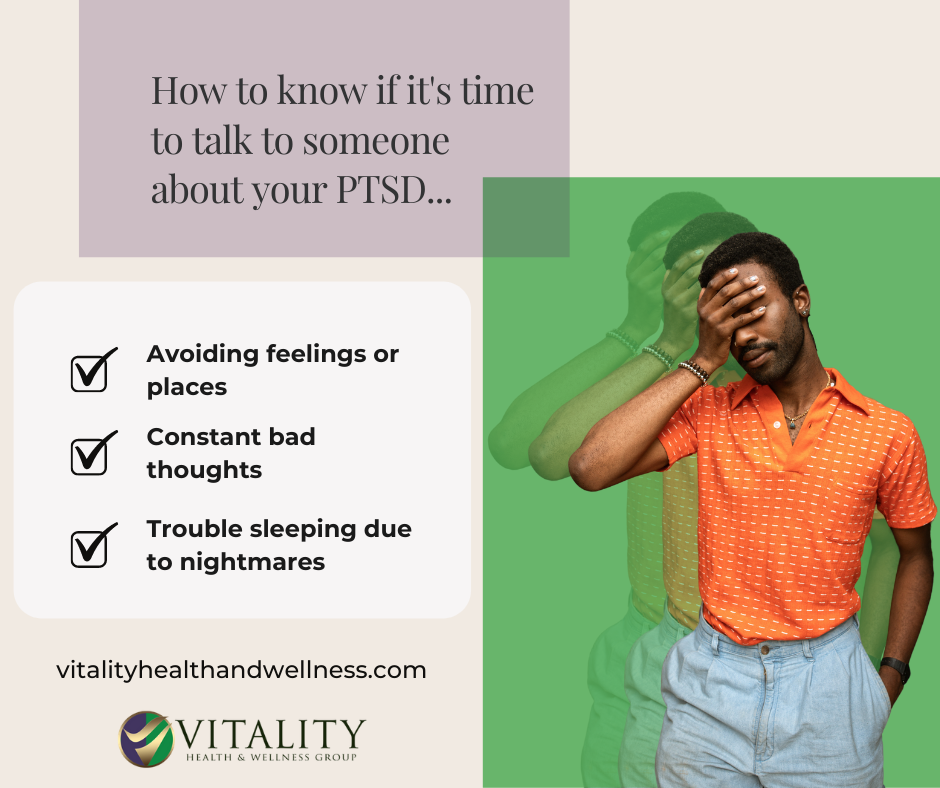
Let’s Talk About PTSD
LET’S TALK ABOUT PTSD AND HOW IT IS NOT JUST A “MILITARY ” THING
BY DR. DANA HUBBARD, DHA, LCSW-C
June is PTSD awareness month. Most of us in the black community lack the understanding of what specifically is PTSD. Please believe me it is not just a military disorder. Post- Traumatic Stress Disorder (PTSD) is when someone has experienced, witnessed, or had a close encounter with an event that may have caused significant harm, danger, helplessness, or intense fear. This article will help you understand what 5 things you should know and look out for.
1.HAVE YOU WITNESSED OR PERSONALLY HAD A TRAUMATIC EVENT. If the answer to this question is yes, you have one of the requirements of PTSD. Some of us in the black community may have experienced trauma (traumatic events) before we reached adulthood. Some of these traumatic events include witnessing domestic violence, experiencing childhood sexual or physical abuse, or if you from the inner city have witnessed a few folks getting their a** beat or even killed.
2. THE EVENT HAS HAPPENED MORE THAN 6 MONTHS AGO, NOW WHAT. If the traumatizing event has happened six months ago and you are experiencing the following things, you should seek support
3. YOU ARE EXPERIENCING THESE SYMPTOMS PERIODICALLY. PTSD affects the body’s trauma response/nervous system significantly. Our body gives us cues that “we are not ok“ and most individuals lack the awareness of what should be concerning.
- Difficulty concentrating
- Outburst of Anger/Irritability that you cannot control
- Nightmares and/or trouble falling asleep or staying asleep
- Avoidance of people or things that make you think about the event
- Lack of interest in activities that used to bring you joy
- anxiety, extreme sadness out of nowhere, neglect of personal appearance, decreased hygiene
- Difficulty maintaining and establishing HEALTHY AND EFFECTIVE relationships.
4. YES, I HAVE ANSWERED ALL THE ABOVE NOW WHAT? Many of my clients have had PTSD for years and have gone undiagnosed and sometimes misdiagnosed/being treated as something else
(ADHD, ANXIETY). If you go untreated, by not seeing a mental health therapist or medication (if you desire), PTSD can significantly disrupt your life. It can cause extreme distance and detachment in intimate/loving relationships, impair your work and social life.
5.WHAT SHOULD I DO NEXT DR. D contact or consult with a mental health therapist. These professionals are equipped with tools that can help ups navigate through your PTSD symptoms. PTSD is not a curable disorder. However, you can live a healthy and effective life if you seek proper treatment. Please do not think medication is the only way to manage your symptoms. As someone who has a personally been diagnosed with pTSD, it does not define you or your capabilities. You have options and can choose the best treatment plan for you with a licensed professional’s assistance.
- DREAMS ABOUT THE EVENT
- REOCCURRING ANXIOUSNESS OR DISTRESSING ACCOUNTS OF THE EVENT INCLUDING IMAGES, THOUGHTS, OUT OF NOWHERE
- FLASHBACKS OR INCIDENTS THAT CAUSES YOUR BODY TO RESPOND AS IF THE DANGER IS AROUND AGAIN (PANIC ATTACKS, RACING HEARTS, FEELINGS OF INTENSE FEAR)
